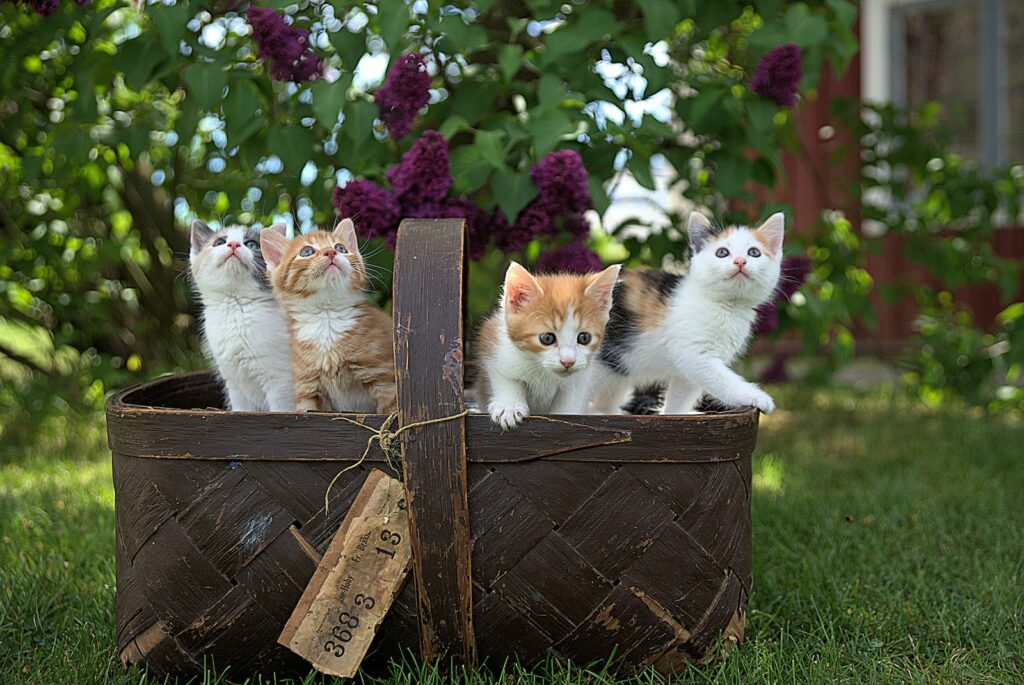Can Cats Eat Anchovies? — Yes, They Can
While you may enjoy the salty and savory taste of anchovies, you may wonder if it’s safe to share this treat with your feline friend. The good news is that cats can indeed eat anchovies and enjoy their flavorful goodness. However, as with any new food introduction, it’s important to exercise caution and moderation.
Can Kittens Eat Anchovies?
Yes, kittens can eat anchovies, but it’s important to take a few factors into consideration. Kittens have more delicate digestive systems compared to adult cats, so it’s crucial to feed them small, appropriate portions. Additionally, ensure that the anchovies are boneless and free from any added salt or seasoning.
Things to consider when feeding anchovies to kittens?
When feeding anchovies to kittens, it’s important to consider their age, size, and overall health. The portions should be small and easily digestible. As with any new food introduction, monitor your kitten for any adverse reactions or digestive issues, and consult with your veterinarian if you have any concerns.
Nutritional Benefits of Anchovies for Cats — Why Anchovies are Good for Cats?
Rich in Omega‑3 Fatty Acids
Anchovies are packed with omega‑3 fatty acids, which play a crucial role in maintaining a cat’s overall health. These essential fatty acids provide numerous benefits, including reducing inflammation, promoting a healthy coat and skin, and supporting brain function.
Excellent Source of Protein
Protein is an essential nutrient for cats, as it helps maintain strong muscles and supports various bodily functions. Anchovies offer a high-quality protein source for your feline companion, ensuring they receive the necessary amino acids they need for optimal health.
Contains Essential Vitamins and Minerals
Anchovies are also rich in essential vitamins and minerals, including vitamin D, calcium, phosphorus, and selenium. These nutrients contribute to maintaining healthy bones, teeth, and overall well-being in cats.
Supports Heart Health
The omega‑3 fatty acids found in anchovies have been linked to promoting heart health in cats. These healthy fats can help reduce the risk of cardiovascular diseases and maintain a healthy heart rhythm.
Promotes Hydration
Anchovies, like other wet cat foods, contain moisture that contributes to proper hydration in cats. Adequate hydration is crucial for maintaining kidney health and preventing urinary tract issues.
Potential Allergies: Can Cats Be Allergic to Anchovies?
Cats can develop allergies to various types of food, and anchovies are no exception. While rare, some cats may be allergic to anchovies or experience adverse reactions after consuming them. It’s essential to keep an eye out for any allergic symptoms and discontinue feeding anchovies if any signs of an allergic reaction occur.
Symptoms of Anchovy Allergies in Cats
- Vomiting and diarrhea: Look for frequent episodes of vomiting or loose stools after consuming anchovies.
- Skin rashes and itching: If you notice your cat excessively scratching, biting, or licking their skin, it could indicate an allergic reaction.
- Difficulty breathing or wheezing: Allergic reactions can sometimes manifest as respiratory issues such as wheezing or difficulty breathing properly.
What to Do If Your Cat Shows Symptoms?
- Immediately stop feeding anchovies to your cat and monitor their symptoms closely.
- Contact your veterinarian for guidance on managing allergic reactions and for any necessary treatment.
- If the symptoms are severe or worsen rapidly, seek emergency veterinary care.
Recommended Amount: How Much Anchovies Can a Cat Consume?
When it comes to feeding anchovies to your cat, moderation is key. It’s advisable to offer anchovies as an occasional treat rather than a regular part of their diet. As a general guideline, one or two small anchovies per week should be sufficient. Remember to adjust the portion size based on your cat’s size and overall dietary needs.
Things to Consider When Feeding Anchovies to Cats
Before feeding anchovies to your cat, consider the following:
- Choose boneless anchovies to avoid any potential choking hazards.
- Ensure the anchovies are properly cleaned and do not contain any added salt, seasoning, or other harmful ingredients.
- Monitor your cat for any individual sensitivities or digestive upset after consuming anchovies.
- Always consult with your veterinarian to ensure anchovies are suitable for your cat’s specific dietary requirements and overall health.
How to Feed Anchovies to Cats: A Quick Guide
Feeding anchovies to your cat can be a delightful experience for both of you. Here’s a simple guide to get you started:
Sprinkle as a Topping
You can sprinkle a small amount of finely chopped or mashed anchovies over your cat’s regular wet or dry food. This adds flavor and nutritional benefits to their meal.
Homemade Anchovy Treats
You can also make homemade anchovy treats by mixing mashed anchovies with a bit of cat-safe flour, such as oat or rice flour, and baking them into small, cat-sized biscuits.
Avoid Excessive Salt
When preparing anchovies for your cat, be mindful of the salt content. Excessive salt can be harmful to cats, so it’s best to choose unsalted or low-sodium anchovies.
Conclusion
In conclusion, cats can enjoy anchovies as part of their diet, and these small fish can provide a range of nutritional benefits. However, it’s important to feed them in moderation and consider individual sensitivities or allergies. Always prioritize your cat’s well-being and consult with your veterinarian if you have any concerns or questions regarding your cat’s dietary needs.





